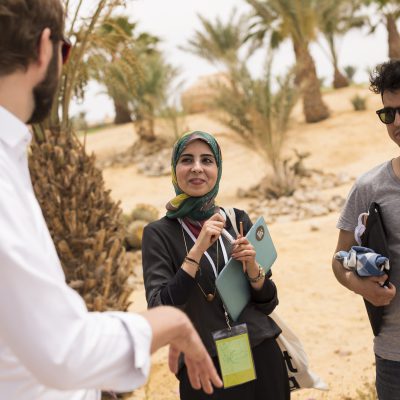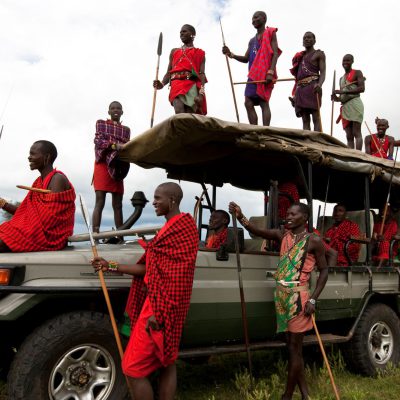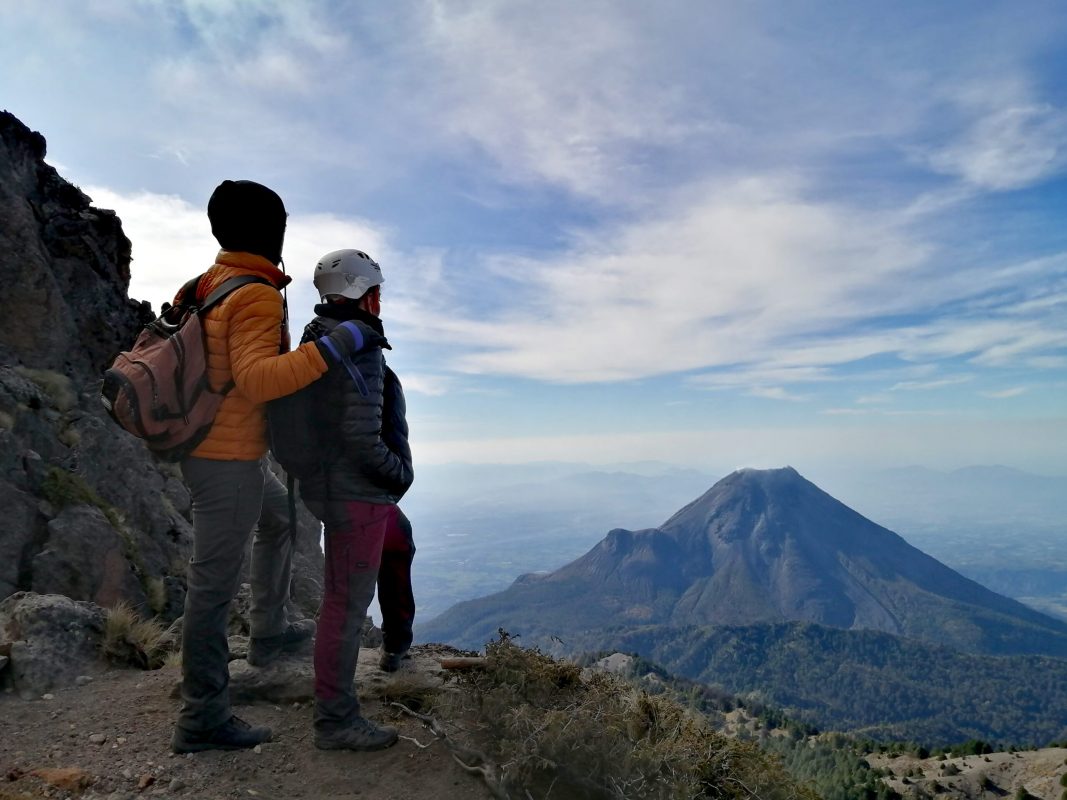
In an Unprecedented Crisis, Organizational Resilience Alone Won’t Keep Tourism Businesses Afloat
While most industries globally took a severe hit during the COVID-19 pandemic, hardly any sector was affected as badly as the tourism industry. Travel bans, closed borders, and strict hygiene measures brought international travel to an almost complete standstill in early 2020. And while vaccination campaigns have since made tourist movement possible again in some places, many Global South destinations continue to suffer the consequences of the restrictions.
A recent study among applicants for a COVID-19 relief program for small tourism businesses in emerging economies reveals the devastating effects of this crisis on small and medium enterprises (SMEs) in the travel sector. Findings suggest that the ongoing discourse around organizational resilience as a means of preventing and mitigating negative effects of acute crises on businesses fails to take into account the magnitude of adversity experienced by tourism companies during the current pandemic. “The data clearly shows that capacity building and organizational support alone are not enough to help tourism SMEs in the Global South to survive the crisis”, says Elisabeth Uhlig, author of the study. “The impact of small business failure goes way beyond the economic consequences – it threatens people’s livelihoods and the development of entire regions. While organizational support and resilience building measures may have beneficial effects, policy makers are urgently called upon to take remedial action here and to offer concrete support to struggling businesses.”
No clients and looming liquidity problems
The study relies on data from the application process of enpact’s COVID-19 Relief Programme for Tourism, where a total of 500 tourism SMEs from Mexico, Kenya, Jordan, and Indonesia applied for technical and financial support in the fall of 2020. At this point, the majority of surveyed companies had lost over 90% of their clients, with one-third reporting that they had received no clients at all during the first four months of the pandemic. Even with reduced expenses, almost two-thirds of businesses indicated that they could not cover their expenditures with little to no income at hand. These staggering figures were also reflected in the companies’ projected runway: nine out of ten businesses reported that at the time of response, they could not sustain their business for longer than six months without any external help. Moreover, around one-third of SMEs could not draw on savings and were already facing severe liquidity problems.
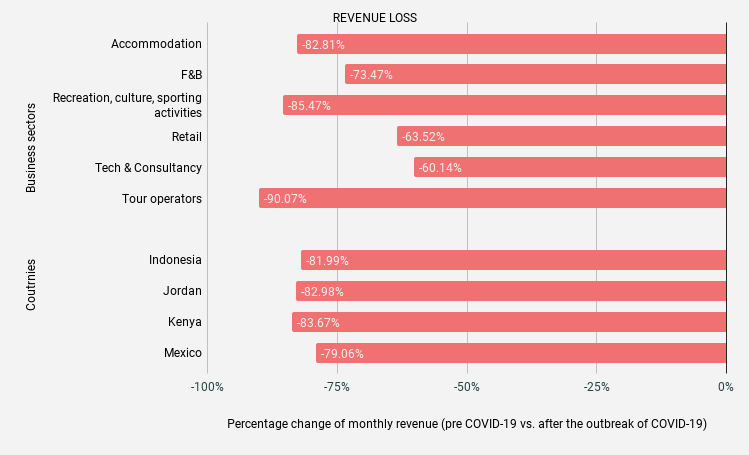
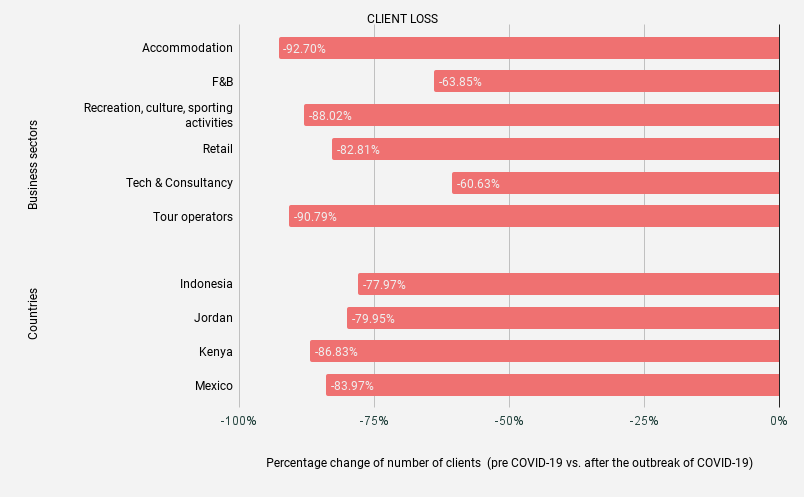
Discourse on solutions to the current and potential future crises often treats resilience as a powerful concept to mitigate negative effects of adversity. A frequently used buzzword, resilience as a concept still lacks a universal definition and, especially at the organizational level, precise operationalization. Still, it is often suggested that through capacity building and technical support, tourism SMEs could be strengthened in such a way that they would be able to survive even severe crises by themselves. Uhlig objects to such notions: “The current crisis has made virtually any business practice within the tourism supply chain impossible over a duration of months or even years in some places. To think that management solutions and improved organizational resilience alone could be sufficient to stay afloat in such a situation oversimplifies this complex issue and places the responsibility to successfully navigate the impact of the pandemic solely on business leaders.”
Capacity building alone no replacement for financial support
Nonetheless, findings from the study do suggest that tourism companies resort to capacity building as one way to respond to the crisis. Surveyed businesses reported a lack of skills and competencies in areas such as financial management, market access and sales, as well as product development and new technologies and were eager to improve in these areas. Data from the research shows, however, that four months into the pandemic, the majority of surveyed businesses were at their absolute limit financially and thus likely to fail without additional support.
The study thus concludes that while efforts to enhance organizational resilience among tourism SMEs in emerging economies are worthwhile and can surely improve the ability of a business to mitigate the adverse effects of a crisis, they are no replacement for financial and fiscal support in the face of a severe crisis like the current pandemic.
Whereas many high-income countries are able to provide economic support to small business owners, governments of emerging countries often lack the resources to get much-needed support packages on the way. SMEs, particularly in tourism, are thus left to face the consequences on their own. To prevent the bankruptcy of countless businesses with adherent results for the livelihoods of people and the economic development of entire regions, international cooperation in the form of relief and recovery programs is strongly required. Stable touristic ecosystems and infrastructurally healthy destinations are essential for economic growth and development in emerging economies, but also for the global travel industry as a whole. Policy makers across the world are thus well-advised to seek solutions together and not leave small business leaders flat.
The study, titled “Economic Impact of the COVID-19 Crisis on Small and Medium-Sized Businesses in Developing and Emerging Countries – Policy Demands and the Limitations of Resilience” is to be published in the near future.
—
Image credits:
Header image: Turistico Nevado de Colima, Mexico.
Cover image: Cilota Bali, Indonesia.

